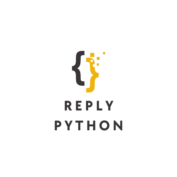 Curious about whether diving into the world of coding is worth it? The decision to learn to code is a hot topic in today’s digital age. It’s not just for tech gurus or computer science majors anymore. Learning to code can open doors to a plethora of opportunities in various industries. From web development to data analysis, coding skills are in high demand.
Curious about whether diving into the world of coding is worth it? The decision to learn to code is a hot topic in today’s digital age. It’s not just for tech gurus or computer science majors anymore. Learning to code can open doors to a plethora of opportunities in various industries. From web development to data analysis, coding skills are in high demand.
In this article, explore the reasons why picking up coding skills could be a game-changer for your career. Discover how coding can enhance problem-solving abilities, boost creativity, and even lead to higher earning potential. Whether you’re a beginner contemplating your first line of code or someone looking to upskill, understanding the benefits of learning to code is essential in today’s tech-driven world.
The Benefits of Learning to Code
Learning to code offers a myriad of benefits that extend beyond traditional tech roles. It opens up diverse career opportunities in various industries and enhances cognitive skills for better problem-solving capabilities.
Career Opportunities in Tech
Learning to code unlocks a vast array of career paths in the tech industry. From software engineering to app development and cybersecurity, coding skills are highly sought after in today’s job market. IT professionals with coding proficiency can work in fields like artificial intelligence, machine learning, and data science, leading to lucrative and fulfilling careers.
Cognitive and Problem-Solving Skills
Coding sharpens cognitive abilities and fosters advanced problem-solving skills. By breaking down complex issues into smaller solvable parts, individuals can develop logical thinking and analytical reasoning. Learning to code encourages creativity and innovation by enabling individuals to design solutions efficiently and effectively.
Choosing the Right Programming Language
When deciding on the right programming language to learn, individuals should consider various factors to ensure they make an informed choice.
Factors to Consider
- Goals and Interests: Individuals should align their choice of programming language with their career goals and personal interests. For example, those interested in web development may
 opt for languages like HTML, CSS, and JavaScript, while individuals aiming for data analysis roles may focus on languages like Python or R.
opt for languages like HTML, CSS, and JavaScript, while individuals aiming for data analysis roles may focus on languages like Python or R. - Job Market Demand: Researching the job market to understand which programming languages are in high demand can help individuals choose a language that enhances their employability. For instance, languages like Java, Python, and JavaScript are widely used across different industries and are sought after by employers.
- Learning Curve: Considering the complexity and learning curve of different programming languages is crucial, especially for beginners. Some languages, such as Python, are known for their readability and user-friendly syntax, making them ideal for novices, while others like C++ may have a steeper learning curve.
- Community Support: Opting for a programming language with a strong community can provide valuable resources, support, and opportunities for networking. Languages like JavaScript and Python have large and active communities that offer tutorials, forums, and libraries to aid in the learning process.
- Python: Known for its simplicity and versatility, Python is a popular choice for beginners due to its readability and extensive libraries, making it suitable for various applications such as
 web development, data analysis, and artificial intelligence.
web development, data analysis, and artificial intelligence. - JavaScript: As a fundamental language for web development, JavaScript is essential for creating interactive websites and web applications. Its widespread use and compatibility with different browsers make it a valuable language to learn for aspiring web developers.
- HTML/CSS: While not traditional programming languages, HTML and CSS are crucial for building websites. They form the foundation of web development and are essential languages for anyone looking to pursue a career in front-end development.
- Java: Widely used in enterprise applications and mobile development, Java is a versatile language that provides a solid foundation for beginners looking to venture into software development. Its object-oriented structure and platform independence make it a valuable language to learn.
By considering these factors and exploring popular languages for beginners, individuals can make an informed decision when choosing a programming language to learn, setting a strong foundation for their coding journey.

